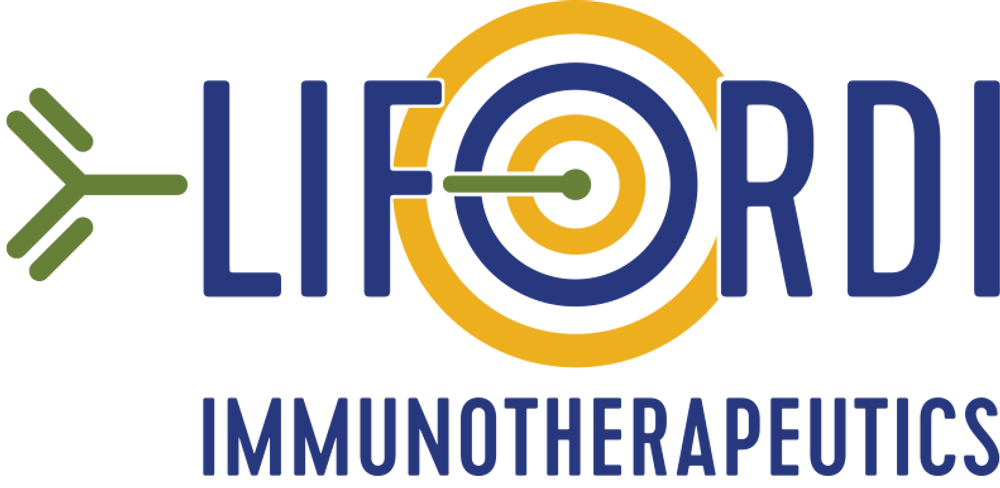BURLINGTON, MA – October 27, 2025 -- Lifordi Immunotherapeutics, Inc., a clinical-stage biotech company developing antibody-drug conjugates (ADCs) for the treatment of autoimmune and inflammatory disorders, presented nonclinical data on its lead LFD-200, an ADC delivering a potent glucocorticoid (GC) directly to immune cells. The Company also announced that its Phase 1 study of LFD-200 in Rheumatoid Arthritis (RA) is underway and initial data from healthy participants (HPs) are anticipated by year-end 2025. The data presented at the American College of Rheumatology (ACR) Convergence 2025 meeting demonstrated that LFD-200 achieves sustained GC exposures in immune cells of non-human primates (NHPs) for at least seven days and suppresses proinflammatory cytokine expression without evidence of toxicity after 13 weekly, clinically relevant doses.
“Today we unveil that we have started our Phase 1 SAD/MAD clinical study of LFD-200 in RA, a multifactorial disease with a large unmet need, and confirm our plan to generate preliminary data from healthy participants by the end of 2025,” said Arthur Tzianabos, Ph.D., President & Chief Executive Officer. “In just over two years we have taken LFD-200 from the lab to the clinic, which is a major accomplishment reflecting the execution by our team and support from our Board of Directors, Clinical Advisors, and industry partners. We look forward to demonstrating how the data we have generated to date, which shows the immune-cell selectivity of our VISTA-targeted delivery approach, translates to first-in-human studies of LFD-200.”
In the poster entitled “LFD-200, an Antibody Drug Conjugate that Selectively Delivers a Glucocorticoid Payload to Immune Cells, Provides Sustained Anti-inflammatory Effects Without Systemic Toxicity in Non-human Primates,” on Sunday, October 26, 2025, 10:30 AM – 12:30 PM CST, Dr. Matthew W. McClure, Chief Medical Officer of Lifordi, presented results from studies of LFD-200 in NHPs, which demonstrated:
- Single dose of LFD-200 achieves ≥7-day GC exposure in immune cells
- Immunohistochemistry detects GC payload in immune tissues of lymph nodes and spleen 7 days after a single dose vs. no staining in vehicle control
- LFD-200 dose-dependently reduces proinflammatory cytokines after ex vivo stimulation of whole blood and bone marrow
- Reduced levels of TNFα and IL-1β after a single dose of LFD-200 at 5 mg/kg or 20 mg/kg
- LFD-200 does not suppress cortisol at clinically relevant doses
- No change was seen in cortisol after a single dose of LFD-200 at ≤20 mg/kg for up to 14 days, unlike the dexamethasone control
- No cortisol reduction was observed after receiving clinically relevant doses of LFD-200 (25 mg/kg) or monoclonal antibody following weekly dosing for 13 weeks
- LFD-200 does not suppress bone markers at clinically relevant doses
- After 13 weekly doses of LFD-200 at 25 mg/kg, no reduction in bone formation (P1NP) or bone mineral density was observed
To view the poster, click here.
“The ability to harness the anti-inflammatory effects of glucocorticoids while limiting systemic toxicities has been the ‘holy grail’ of autoimmune treatment for 75 years,” said Dr. McClure. “These data in NHPs show that a steroid can be delivered directly to immune cells with sustained exposures that deliver anti-inflammatory effects and have no impact on cortisol or bone biomarkers after 13 weekly clinically relevant doses of LFD-200. Lifordi’s goal now is to determine if this is also true in the clinic, first by demonstrating that LFD-200 is safe and able to suppress inflammatory cytokines in HPs, followed by proof of mechanism in patients with RA, a prevalent disease where GCs are highly effective in almost all patients, but their use has been limited by toxicity.”
Lifordi Immunotherapeutics, Inc. is a clinical-stage biotechnology company leading the way by leveraging the success of antibody-drug conjugates (ADCs) to develop treatments for autoimmune and inflammatory disorders. The Company’s lead ADC, LFD-200, is in a Phase 1 clinical trial and preclinical studies demonstrated efficacy in multiple disease models by targeting myeloid and lymphoid cells using a highly internalized cell surface membrane protein (VISTA). Lifordi has also applied its novel drug delivery platform to other diverse payloads, such as small molecules, antisense oligonucleotides (ASOs), and siRNA. As experienced drug developers in immunology and inflammatory diseases, together with expert clinical advisors, a strong partnering track record, and funding from ARCH Venture Partners, 5AM Ventures, and Atlas Venture, Lifordi is committed to changing how immune and inflammatory diseases are treated. For more information, please visit www.lifordi.com.




